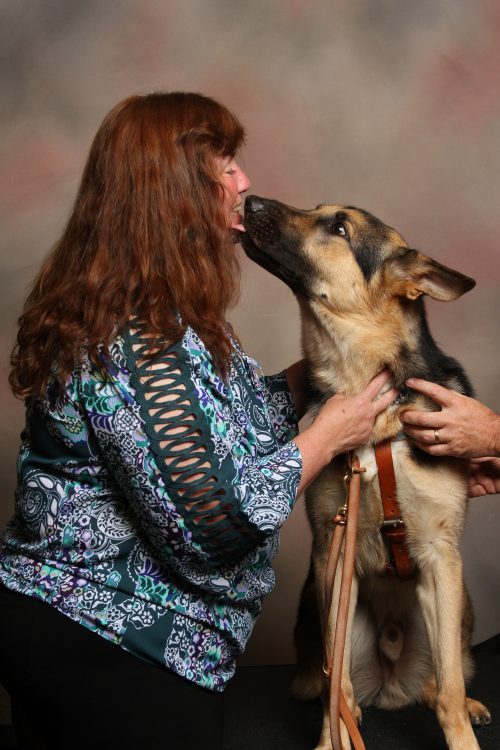This content was published: July 23, 2020. Phone numbers, email addresses, and other information may have changed.
As America celebrates ADA anniversary, PCC moves forward on an accessible future
Photos and story by James Hill
At Portland Community College, staff, faculty and students are creating a more accessible future for the college. With the 30-year celebration of the passage of the Americans with Disabilities Act (ADA) on July 26, their efforts and that of PCC are becoming more important.
In 2015, PCC’s Accessibility Council was created to help guide efforts to identify and manage accessibility priorities. In 2018, the Committee for an Accessible College Culture, the Accessible Built Environment Committee (focusing on structural barriers) and the Accessible Digital Environment Committee (identifying technology obstacles) were formed to tackle accessibility issues.
“We work to make sure students, faculty, staff, and visitors all can participate in PCC programs, services, and extra curricular events because inclusion is a top priority,” said Patricia Kepler, who works as a PCC accessibility specialist. “Just like other marginalized groups, our students with disabilities often feel isolated and need a place where they can gather and talk through the stresses they experience.”
A few primary goals of the Committee for an Accessible College Culture includes exploring the addition of disability cultural centers at each PCC campus to give students a welcoming space, chartering of Delta Alpha Pi (a National honor society for students with disabilities), drafting a formal service animal policy, and the addition of audio descriptions to the Sylvania theater performances.
“The disabilities cultural center can be a natural place where students feel welcome and included, and provide a space for mentoring students and organizing advocacy events,” said Usha Ramanujam, business faculty and a member of the committee.
Kepler added, “The honor society can focus on leadership, service projects, civic engagement, employment, internships, scholarships and more for students.”
Accessibility at PCC
Learn how the college is developing a culture that is welcoming to students, staff, faculty and visitors who experience disability and to identify and dismantle barriers.
In 2016, PCC’s Office of Planning & Capital Construction (P&CC) began a multi-phased facilities planning effort to assess and improve the college’s built environment. The effort was a collaboration of PCC stakeholders across eight different work groups, a steering committee and a task force, as well as several external consultants. One unique feature of the plan is the identification of Accessible Travel Networks for each college location, which prioritize accessible paths of travel to and from major destination points.
This effort has led to new projects funded by the voter-approved 2017 bond measure to include accessible and welcoming buildings. For instance, the HT Building renovation’s design phase used stakeholder feedback to improve the accessibility, from wayfinding to site improvements, in the plans. And the Portland Metro Workforce Training Center redevelopment is using similar design principles to create a positive and supportive space for students and visitors of all abilities.
“The P&CC Office contracts with a third party ADA consultant to review plans for all major construction projects to make sure the college is doing all it can to improve accessibility at all its locations,” said Rebecca Ocken, planning manager with P&CC.
Graduate Kiersi Coleman, who uses a wheelchair and has cerebral palsy, can attest to the current challenges. The Tualatin High School grad came to PCC because she knew it would be more accessible than a university and to work on prerequisites. But there were hurdles nonetheless, such as a lack of communication about accessibility and inaccessible science labs.
But thanks to support by staff, Coleman continued on her academic journey and received an associate degree in general studies. Her long-term career goals are to earn a master’s degree in Social Work and become a clinical social worker for a hospital’s pediatrics unit.
“The college has been accommodating by helping me find the right resource to help me get tested for learning disabilities,” she said. “I also found a great academic advisor who didn’t just push me into a degree, but helped me find the right degree to fit my needs. PCC provided me with the school experience that I didn’t get in high school.”
